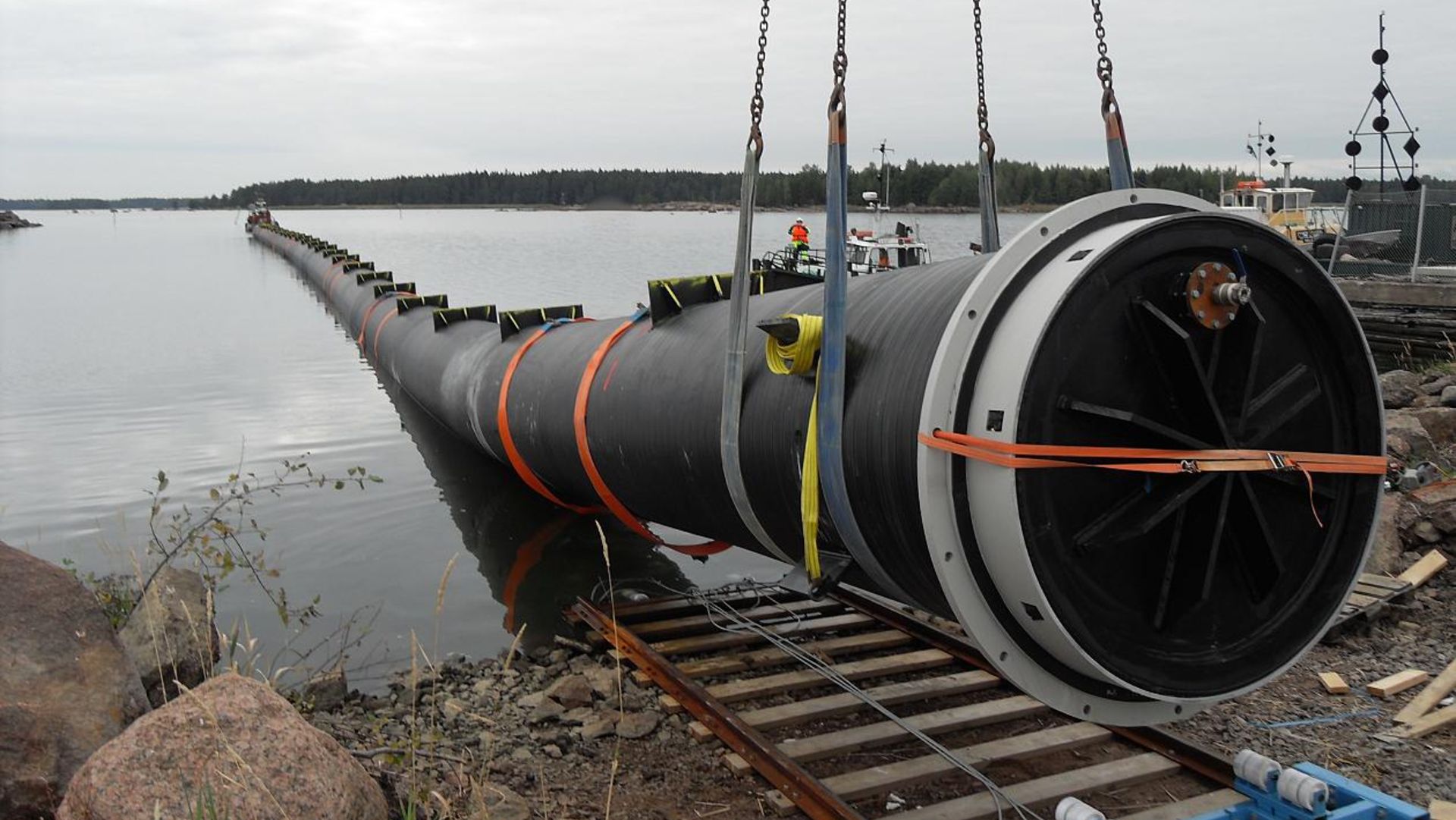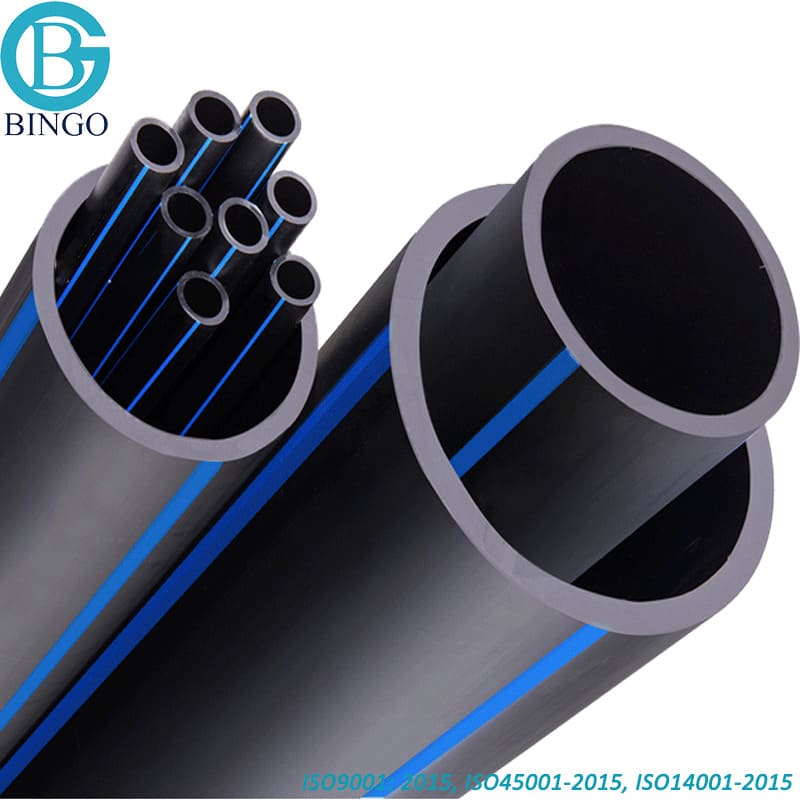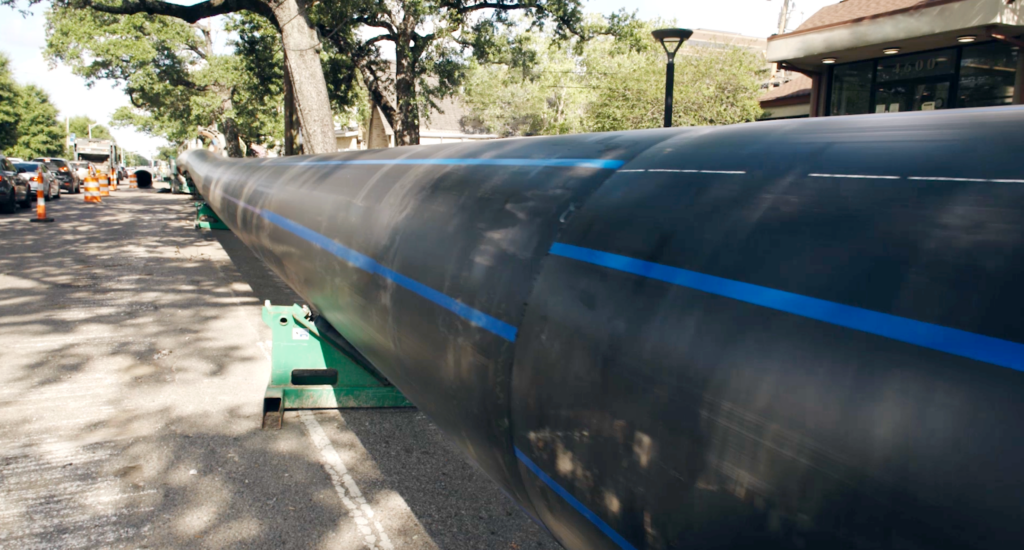Essential traits of a reliable HDPE Pipe Supplier
Wiki Article
Checking Out the Leading Pipeline Manufacturers: Quality, Integrity, and Advancement
The pipeline manufacturing sector stands at the crossway of technology, top quality, and integrity, driven by leading firms such as Tenaris and Vallourec. These makers are not just committed to generating high-performance products yet are likewise introducing sustainable techniques that address modern-day environmental concerns (Pipeline Manufacturer). As we check out the criteria that specify excellence in pipeline services, it ends up being noticeable that the landscape is swiftly advancing. What certain developments are arising, and exactly how are these advancements shaping the future of pipeline infrastructure? The solutions may redefine sector criteria in manner ins which are not yet completely comprehendedLeading Manufacturers Introduction
In the domain of pipeline manufacturing, numerous key players arise as leaders, each contributing substantially to the industry's landscape. Business such as Tenaris, Vallourec, and JFE Steel have developed themselves as frontrunners by continually supplying top quality items that meet stringent sector criteria. Tenaris, renowned for its ingenious solutions, concentrates on smooth and welded pipes, catering mostly to the oil and gas sector. Vallourec, a French international, focuses on the production of costs tubular services, stressing sustainability and advanced innovation in its manufacturing processes.JFE Steel, a major Japanese manufacturer, is identified for its extensive array of steel pipes, especially those made use of in power and facilities tasks. Their commitment to r & d has enabled them to create high-performance products that endure harsh environmental conditions. Furthermore, business like united state Steel and National Oilwell Varco have increased their market visibility by diversifying their product offerings and boosting operational effectiveness.
These leading suppliers not just dominate the market however likewise drive technology within the sector, establishing benchmarks for top quality and dependability that various other gamers strive to achieve. Their contributions are essential for meeting the increasing need for sturdy and efficient pipeline services worldwide.
Standards for Quality Assessment
Quality assessment in pipeline manufacturing hinges on 2 vital standards: product toughness requirements and producing process efficiency. Ensuring that materials fulfill rigorous sturdiness benchmarks is important for the longevity and integrity of pipes. In addition, maximizing the manufacturing procedure can enhance productivity while preserving premium quality, ultimately influencing general performance and safety and security.Material Durability Specifications
Guaranteeing the durability and dependability of pipeline materials is important for preserving facilities honesty and functional performance. Product resilience criteria play a crucial duty in examining the high quality of pipelines, dictating the efficiency and life-span of the products utilized in building. Manufacturers must stick to a range of extensive requirements, including those established by companies such as ASTM International and the American Oil Institute (API)These requirements examine numerous variables, including rust resistance, tensile strength, and fatigue performance. As an example, pipes used in corrosive settings need products that can withstand chemical deterioration, while those subjected to high-pressure problems should display extraordinary tensile strength.
Furthermore, factors such as temperature level changes and ecological problems have to be considered, as these can substantially influence material behavior with time. Manufacturers usually make use of advanced testing approaches, consisting of accelerated aging tests, to imitate lasting wear and warranty that materials meet or exceed industry standards.
Manufacturing Process Performance
Manufacturers' capacity to optimize making procedure performance is vital for creating premium pipes that meet rigorous industry criteria. Effectiveness in producing straight influences price administration, production timelines, and overall product integrity. To achieve this, leading pipeline suppliers carry out advanced methods such as lean manufacturing, automation, and real-time information analytics.Lean manufacturing concepts are necessary in reducing waste and making the most of resource utilization. By simplifying processes and eliminating redundancies, makers can boost performance while guaranteeing constant quality. Automation modern technologies, consisting of robotics and computer mathematical control (CNC) makers, play a critical duty in boosting precision and reducing human error, thereby raising the reliability of the last product.
In addition, the use of real-time data analytics permits suppliers to monitor manufacturing procedures constantly, allowing them to determine traffic jams and make timely changes. This positive technique not just improves effectiveness yet likewise sustains quality guarantee methods by guaranteeing conformity with governing requirements.
Dependability in Pipeline Solutions
Dependability in pipeline solutions is extremely important, as it directly impacts the safety and performance of liquid transport systems. Secret factors include the toughness of materials made use of, adherence to rigorous testing and accreditation standards, and the unification of ingenious material options that improve performance. Understanding these elements is vital for manufacturers intending to supply reputable pipeline infrastructure.Relevance of Durability
Accomplishing resilience in pipeline options is essential, as it straight affects the long-lasting performance and safety and security of framework. Resilient pipelines are essential for decreasing maintenance costs and minimizing the likelihood of devastating failings. This reliability is particularly crucial in industries such as oil and gas, water, and wastewater administration, where the consequences of pipeline failing can be extreme, both financially and environmentally.The materials and producing procedures used by pipeline makers play a considerable duty in establishing the sturdiness of the last item. Utilizing high-quality resources, advanced innovations, and ingenious style concepts ensures that pipelines can hold up against different stressors, including pressure variations, temperature level variations, and harsh atmospheres.
Additionally, the durability of pipes is very closely linked to their capability to withstand external elements such as dirt movement, seismic activity, and chemical direct exposures. Effective deterioration defense approaches, such as coatings and cathodic defense, better improve the durability of pipelines, guarding them against damage over time.
Purchasing durable pipeline options eventually converts to enhanced operational performance, reduced downtime, and improved safety and security, verifying the important importance of durability in modern pipeline manufacturing.
Checking and Certification Requirements
In the domain of pipeline services, extensive screening and accreditation criteria are crucial to assure the dependability and safety and security of infrastructure. These criteria offer as criteria for reviewing the performance and sturdiness of pipeline materials and systems, confirming they satisfy specific regulative and industry requirements.Testing processes typically encompass numerous approaches, consisting of stress testing, hydrostatic examinations, and non-destructive screening methods. These analyses are crucial for recognizing prospective weak points or defects in the materials before they are deployed in real-world applications. Additionally, accreditation by acknowledged organizations assurances that suppliers abide by established guidelines, which fosters trust amongst stakeholders, consisting of professionals, end-users, and engineers.
Numerous leading pipeline producers engage in continual monitoring and enhancement of their testing protocols to adjust to progressing sector standards and technological improvements. Conformity with criteria such as ASTM, ASME, and ISO not only enhances product reliability yet additionally reduces the risk go to website of ecological incidents connected with pipeline failures.
Cutting-edge Material Solutions
The growth of innovative material remedies has actually changed the landscape of pipeline manufacturing, improving both efficiency and sturdiness. Advanced materials such as high-density polyethylene (HDPE), cross-linked polyethylene (PEX), and composite materials have actually emerged as game-changers, supplying premium resistance to deterioration, temperature level changes, and pressure variations. These products not only prolong the lifespan of pipelines but likewise decrease maintenance prices, ensuring dependable long-lasting performance.Manufacturers are significantly embracing smart materials that integrate sensing units for real-time monitoring. This innovation enables proactive maintenance, significantly enhancing dependability by detecting leaks or architectural weaknesses prior to they rise into important failings. The combination of nanotechnology has actually additionally brought about the development of finishings that boost the resilience of pipelines against abrasion and chemical direct exposure.
Sustainability is an additional crucial focus, with makers exploring bio-based compounds and recyclable materials that reduce ecological influence. As governing requirements remain to progress, the focus on innovative material options ends up being paramount in conference rigorous safety and security and environmental demands. Eventually, these developments not just improve the reliability of pipeline systems but additionally add to the overall effectiveness and sustainability of energy transportation infrastructures.
Technologies in Pipeline Modern Technology
Developments in pipeline modern technology are reinventing the industry by enhancing performance, safety and security, and ecological sustainability. Current innovations focus on smart pipeline systems that make use of sensors and IoT technology to check problems in real time, enabling aggressive maintenance and lowering the risk of failings. These systems can detect leaks, pressure changes, and other anomalies, permitting for fast action and reducing ecological impact.In addition, the growth of sophisticated materials, such as corrosion-resistant and composite alloys, significantly expands the life expectancy and reliability of pipes. HDPE Pipe Supplier (HDPE Pipe Manufacturing Texas). These materials reduce maintenance prices and boost performance in rough settings, making them suitable for gas, water, and oil transport
Automation and robotics are playing an essential duty in pipeline building and evaluation. Drones and robotic gadgets help with studies and evaluations of hard-to-reach locations, ensuring extensive assessments without compromising safety.
Additionally, cutting-edge styles, such as modular pipeline systems, permit greater adaptability in setup and adjustment, providing to the dynamic demands of the energy market. With each other, these technical advancements not just boost operational effectiveness yet also add to a much more sustainable and resilient pipeline framework, leading the way for a greener future.
Instance Studies of Success
Throughout different industries, effective applications of sophisticated pipeline modern technologies show significant renovations in functional efficiency and safety. One notable situation is the deployment of wise pipeline tracking systems in the oil and gas sector, where real-time data analytics have actually lowered leak detection times by over 50%. This not only decreases environmental risks yet additionally enhances the overall stability of pipeline infrastructure.
Additionally, a major manufacturer implemented robotic inspection modern technologies in its pipeline upkeep procedures, resulting in a 40% improvement in evaluation efficiency. This approach has structured maintenance schedules and considerably lowered downtime.
These case researches highlight just how prominent pipeline suppliers are leveraging sophisticated modern technologies to foster dependability and functional excellence, eventually setting new standards for the market. As these successes proceed to unravel, they lead the way for additional innovations in pipeline manufacturing and monitoring.

Environmental Sustainability Practices
Often, pipeline manufacturers are focusing on environmental sustainability methods to reduce their environmental footprint and boost the long life of their products. This dedication is mirrored in different efforts targeted at reducing waste, conserving energy, and utilizing sustainable materials throughout the manufacturing process.
Many manufacturers are embracing advanced modern technologies that minimize discharges and power usage. For example, the integration of automated systems and energy-efficient equipment helps improve manufacturing while reducing dependence on fossil gas. In addition, business are significantly transforming to environmentally friendly materials, such as recycled steels and bioplastics, which not only lower the environmental influence however also promote a round economy.
Pipeline manufacturers are carrying out rigorous lifecycle evaluations to review the ecological effects of their items from creation to disposal. This technique allows them to recognize possibilities for improvement and foster liable sourcing and waste management methods.
Collaboration with environmental organizations additionally boosts these initiatives, as manufacturers look for to straighten their procedures with worldwide sustainability objectives. Eventually, these ecological sustainability methods not just add to a much healthier earth but also setting manufacturers as accountable leaders in the market, attracting environmentally mindful stakeholders and customers alike.
Future Trends in Pipeline Manufacturing
As the demand for extra lasting and reliable facilities expands, pipeline manufacturing is poised for significant improvements that will improve the industry. Secret trends expected in the coming years include the assimilation of sophisticated products, such as corrosion-resistant and composite alloys, which enhance resilience while decreasing ecological impact. Manufacturers are also anticipated to embrace cutting-edge production strategies, like additive manufacturing and automation, to streamline procedures, lower waste, and lower expenses.The increase of clever pipeline innovations, integrating sensing units and IoT devices, will enable real-time monitoring and predictive maintenance, therefore boosting safety and security and operational performance. This electronic makeover will not only optimize resource monitoring but likewise promote conformity with stringent ecological laws.
Sustainability will remain a main emphasis, driving manufacturers to buy environment-friendly methods, including energy-efficient manufacturing approaches and reusing initiatives. As the global focus on climate change increases, pipeline suppliers will require to adapt by establishing solutions that satisfy both environmental and economic demands.
Regularly Asked Inquiries

What Industries Mostly Use Pipeline Products From These Manufacturers?
Pipeline items are mainly made use of in markets such as oil and wastewater, water and gas management, chemical processing, mining, and building and construction. These industries depend on effective, sturdy, and risk-free transport of materials and fluids.
How Do Manufacturers Make Certain Conformity With International Pipeline Specifications?
Manufacturers assure conformity with international pipeline standards by executing strenuous top quality control procedures, carrying out normal examinations, adhering to recognized regulatory frameworks, and spending in employee training to promote awareness and understanding of safety and security and top quality requirements.What Is the Ordinary Lifespan of Pipelines From Leading Manufacturers?
The average life expectancy of pipelines from leading manufacturers typically varies from 30 to 100 years, depending on product, environmental problems, and upkeep methods. Permian Basin HDPE Pipe Supplier. Normal examinations and adherence to market criteria markedly affect long life and performanceAre There Certifications Specific to Pipeline Manufacturing Top Quality?
Yes, numerous qualifications exist for pipeline making quality, consisting of ISO 9001 for high quality administration systems and API requirements particular to pipelines. These qualifications ensure adherence to extensive security, performance, and environmental requirements within the sector.Exactly How Do Manufacturers Manage Pipeline Maintenance and Repairs?
Manufacturers generally execute a proactive maintenance technique that includes normal examinations, keeping track of systems for early detection of issues, and an organized repair service procedure. This method assurances pipeline honesty, minimizes downtime, and boosts overall functional effectiveness.Quality evaluation in pipeline manufacturing pivots on two essential standards: material durability requirements and manufacturing procedure efficiency - HDPE Pipe Supplier. Product sturdiness requirements play an important duty in reviewing the top quality of pipelines, dictating the efficiency and life-span of the materials used in building and construction. The products and producing processes employed by pipeline producers play a considerable role in establishing the sturdiness of the final item. The typical life expectancy of pipes from leading makers generally ranges from 30 to 100 years, depending on material, ecological conditions, and maintenance techniques. Yes, various certifications exist for pipeline manufacturing high quality, including ISO 9001 for top quality administration systems and API requirements specific to pipes
Report this wiki page